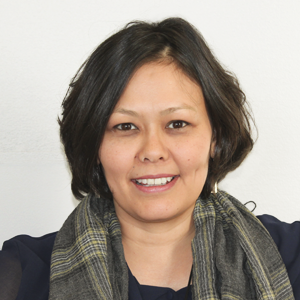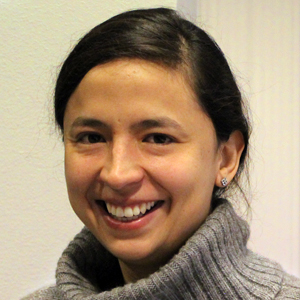Rachel M. Gisselquist, a political scientist, is a Research Fellow with UNU-WIDER. She works on the comparative politics of the developing world, and has published in particular on ethnic politics and group-based inequality, state fragility, governance, and democratization in sub-Saharan Africa. Before moving to Helsinki, she spent three years at Harvard University as Research Director, Index of African Governance, followed by stints at the London School of Economics and with the World Bank.
Belinda Archibong is an Assistant Professor of Economics at Barnard College. Professor Archibong's research areas include development economics, political economy, economic history and environmental economics with an African regional focus. Her research investigates the role of institutions and environment in inequality of access to public services, particularly infrastructure, education and measures of public health.
Carla Canelas is the Assistant Professor of Economics at the American University of Paris. Her primary research interests are in development and labour economics. Her research focus is on human capital, group-based inequalities, and social protection.
Rashid Memon is the Assistant Professor of Economics, Lahore University. His current work focuses on post recruitment discrimination in a lab setting. His research interests include the role of social identity in economic interaction, the link between political identity, labour rioting violence and economic outcomes.
Bharti Nandwani is a Visiting Assistant Professor in Economics at Indira Gandhi Institute of Development Research. Her research interests include the political economy and development economics. Her current work explores the economic and political implications of caste diversity in India.
Frances Stewart is Emeritus Professor of Development Economics at the University of Oxford. Previously she was Director of the Oxford Department of International Development and of the Centre for Research on Inequality, Human Security and Ethnicity and Chair of the United Nation’s Committee on Development Policy. In 2009 She received the Mahbub ul Haq award for outstanding contributions to Human Development from the UNDP and the Leontief Prize for Advancing the Frontiers of Economic Thought, from Tufts in 2013.
 Join the network
Join the network
